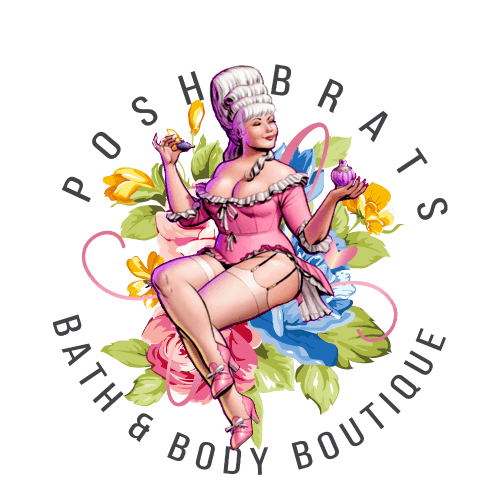Step into the world of aromatherapy, a captivating realm where fragrances have the power to soothe, invigorate, and transport us to another time and place. From ancient civilizations to modern-day wellness practices, the history of aromatherapy is as rich and aromatic as the essential oils themselves. So, grab a cup of tea, sit back, and let's embark on a scented journey through time.
The Ancient Origins
The roots of aromatherapy can be traced back thousands of years to ancient civilizations across the globe. The Egyptians, known for their love of all things luxurious, were among the first to embrace the power of fragrances. They used aromatic oils for religious ceremonies, skincare, and embalming practices. Queen Cleopatra herself was renowned for her indulgence in perfumes and scented baths.
In the East, the ancient Chinese and Indians also recognized the therapeutic benefits of essential oils. The Chinese incorporated fragrances into their healing practices, while Ayurveda, the traditional Indian medicine system, utilized aromatics for both physical and spiritual well-being.
The Birth of Modern Aromatherapy
Fast forward to the early 20th century when modern aromatherapy as we know it began to take shape. The term "aromatherapy" was coined by French chemist René-Maurice Gattefossé in the 1920s. Gattefossé discovered the healing properties of lavender oil when he accidentally burned his hand and applied the oil, noticing its remarkable ability to speed up the healing process and reduce scarring.
Another influential figure in the development of aromatherapy was Marguerite Maury, a French biochemist. Maury believed in the power of essential oils to harmonize the body, mind, and spirit. She pioneered the use of essential oils in massage therapy, creating personalized blends to address specific health concerns.
Aromatherapy Goes Mainstream
As the benefits of aromatherapy became more widely recognized, the practice gained popularity and found its way into mainstream culture. From luxurious spas to wellness retreats, aromatherapy became an integral part of relaxation and self-care rituals.
In the 1980s, the influential book "Aromatherapy: A Lifetime Guide to Healing with Essential Oils" by Valerie Ann Worwood propelled aromatherapy into the homes of countless individuals seeking natural alternatives for health and well-being. The book served as a comprehensive guide, offering recipes and remedies for various ailments.
Today, aromatherapy is embraced not only for its therapeutic benefits but also for its ability to enhance our surroundings and create a sense of ambiance. From scented candles to diffusers, essential oils have become a staple in many households, helping to create a calming oasis amidst the chaos of modern life.
The Science Behind Aromatherapy
While the ancient civilizations intuitively understood the power of aromatherapy, modern science has provided us with a deeper understanding of how it works. Essential oils are highly concentrated plant extracts that capture the aromatic compounds responsible for the plant's distinctive scent.
When inhaled or applied to the skin, these aromatic compounds interact with our olfactory system and can have a profound effect on our mood, emotions, and overall well-being. Lavender, for example, has been shown to promote relaxation and sleep, while citrus scents like lemon and orange can uplift and energize.
Research has also shown that certain essential oils possess antimicrobial properties, making them valuable in fighting off harmful bacteria and viruses. Tea tree oil, known for its potent antimicrobial properties, has gained popularity as a natural remedy for various skin conditions.
Exploring the World of Essential Oils
The world of essential oils is vast and diverse, offering a seemingly endless array of scents and therapeutic benefits. Here are a few popular essential oils and their uses:
- Lavender: Known for its calming properties, lavender is often used to promote relaxation and improve sleep quality.
- Peppermint: The refreshing scent of peppermint can provide a burst of energy and help relieve headaches and digestive discomfort.
- Chamomile: Chamomile is prized for its soothing qualities, making it a popular choice for promoting relaxation and relieving anxiety.
- Eucalyptus: The invigorating aroma of eucalyptus can help clear congestion and promote respiratory health.
- Frankincense: With its rich, earthy scent, frankincense is often used in meditation and spiritual practices to promote a sense of grounding and connection.
Bringing Aromatherapy into Your Life
Ready to embark on your own scented journey? Here are a few ways to incorporate aromatherapy into your daily life:
- Diffusers: Add a few drops of your favorite essential oil to a diffuser to fill your space with a delightful fragrance.
- Massage: Treat yourself to a massage using a personalized blend of essential oils to address specific concerns.
- Bath Time Bliss: Add a few drops of essential oil to your bathwater for a luxurious and aromatic soak.
- Aromatherapy Jewelry: Wear a diffuser necklace or bracelet to enjoy the benefits of aromatherapy on the go.
The Scented Path Ahead
As we continue to explore the fascinating world of aromatherapy, it's clear that its history is deeply intertwined with our human desire for relaxation, healing, and connection. Whether you're seeking a moment of tranquility or looking to enhance your well-being, essential oils offer a fragrant pathway to rejuvenation. So, take a deep breath, inhale the captivating scents, and let aromatherapy guide you on your own scented path to wellness.

